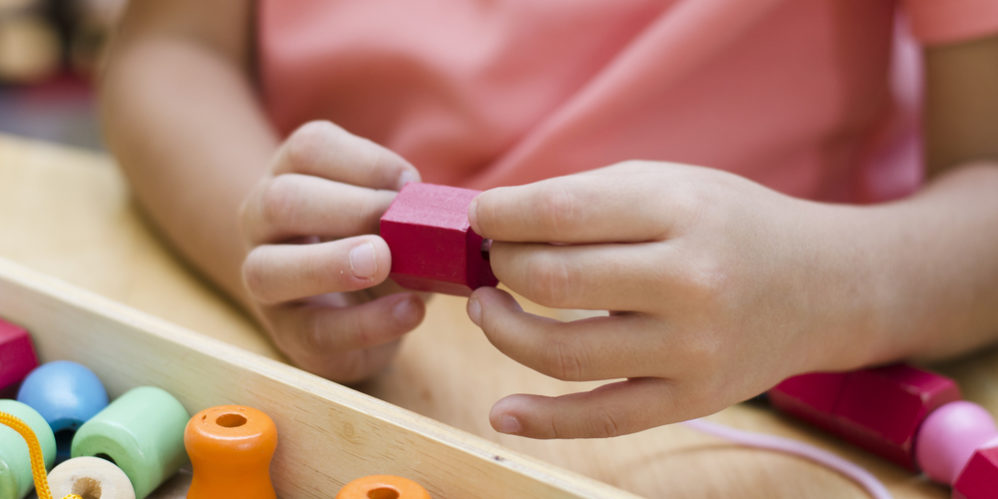Focusing on academics is undoubtedly important, but children are more stressed and anxious than ever before. More and more, we’re seeing children diagnosed with anxiety disorders. Though the reasons for this rising rate are many, this can lead to challenges for your child later in life. The best way to circumvent anxiety is to introduce mindfulness into their daily lives.
Mindfulness is already woven into the Montessori classroom, where children can operate with authority and independence within a supportive and open community. Today we’re going to explain mindfulness in a Montessori environment, as well as how to practice mindfulness at home.
What is Mindfulness?
According to the dictionary, mindfulness is “the quality or state of being conscious or aware of something.” You can also think of it as the ability to concentrate on an experience that is happening within the present moment without getting distracted. For example, you might practice mindfulness while disciplining your child. Perhaps they did something that has made you angry. Rather than losing patience, you take a step back and ask yourself about what you’re feeling, why you’re reacting that way, and how you can respond appropriately.
Individuals who aren’t mindful will do the exact opposite. They will react unthinkingly—and often in dangerous ways—without any reflection.
Benefits of Mindfulness
Teaching children about mindfulness has numerous benefits that range from emotional, spiritual, psychological, and physical. This includes:
- Improved sleep
- Reduced anxiety and stress
- Lower heart rate and blood pressure
- Reduced frustration
- Less muscle tension
- Enhanced concentration, focus, and self-control
- More motivation and self-esteem
- Inner peace and calmness
- More patience, kindness, and empathy
How Mindfulness is Taught at a Montessori School
At a Montessori school in Philadelphia, such as Fishtown Montessori, mindfulness is taught every single day in often very subtle ways. It begins with the prepared environment, in which children can practice self-control and autonomy within limits.
Teachers introduce students to mindfulness by practicing self-care throughout the day. This includes things such as taking a moment to answer a child’s question, telling someone to be patient while they drink water or perform a task, or pausing to breathe and think. When children see this kind of self-regulating behavior, they too will give it a try.
Another tenet of teaching mindfulness involves identifying common stressors and dealing with them. Students learn how to name what is bothering them—dehydration, fatigue, sadness, anger, restlessness—and how to fix the issue. Teachers show children how to get themselves water, how to calm themselves down, and how to breathe.
Every time a child can identify and deal with a problem mindfully, they build new skills and habits that make them more mindful.
Lastly, children are also provided uninterrupted periods where they can concentrate on things they enjoy. During this work time, children have the freedom of choice, so they can their own work pace, take a break when needed, and then progress when they are ready.
Reinforcing Mindfulness at Home
Stress happens every single day. How you deal with that stress can determine how good your day goes. As a parent, it’s important that you also create some space within your day to practice mindfulness, especially around your child. Be sure to make family time where everyone can spend a quiet, unstructured moment together.
Mindful parenting will help your little Montessori student excel. Learn how to notice your own feelings whenever a conflict arises within the household. Learn to pause and consider your intentions before responding. Even if you disagree with your child, consider what they are saying. Actively listen and engage with them calmly.
This will make interactions much smoother, and your child will learn how to effectively manage anger.
In addition to that practice, here are some ways to handle the stresses of life mindfully (and make your home more Montessori):
Allow your child to deal with the consequences of their actions. As a parent, you want to protect your child, but it is also important that they learn how to be responsible. If they forget their lunch or homework assignment, that’s on them, and they will gradually develop strategies that help them remember. Children learn from their mistakes when given the time and space to do so.
Ask thoughtful questions. If you’re child is having an issue with something, don’t simply provide an answer. Ask them about the issues, help them consider routes, alternatives, and consequences. Not only does this alleviate some of your anxiety about your child’s relationships, but it helps them develop skills for navigating conflicts and misunderstandings.
Give them examples. Children look to adults for answers. If you have experienced something similar, tell them about it. By doing so, you show your child that taking such a route will work for them now and in the future.
Teachers at any Philadelphia Montessori School, like Fishtown Montessori, utilize these same three methods in the classroom to teach grace, courtesy, mindfulness, and so much more.
Looking for a Montessori School in Philadelphia?
The Montessori classroom is an ideal space for children to learn more about mindfulness. In today’s world, mindfulness is key to more critical thinking and compassion, and the Montessori method provides ample commitment to all of that. If you would like to enroll your child in a Montessori program, consider Fishtown Montessori. Our highly rated programs and incredible, experienced teachers are one of a kind. Give us a call today to learn more.






